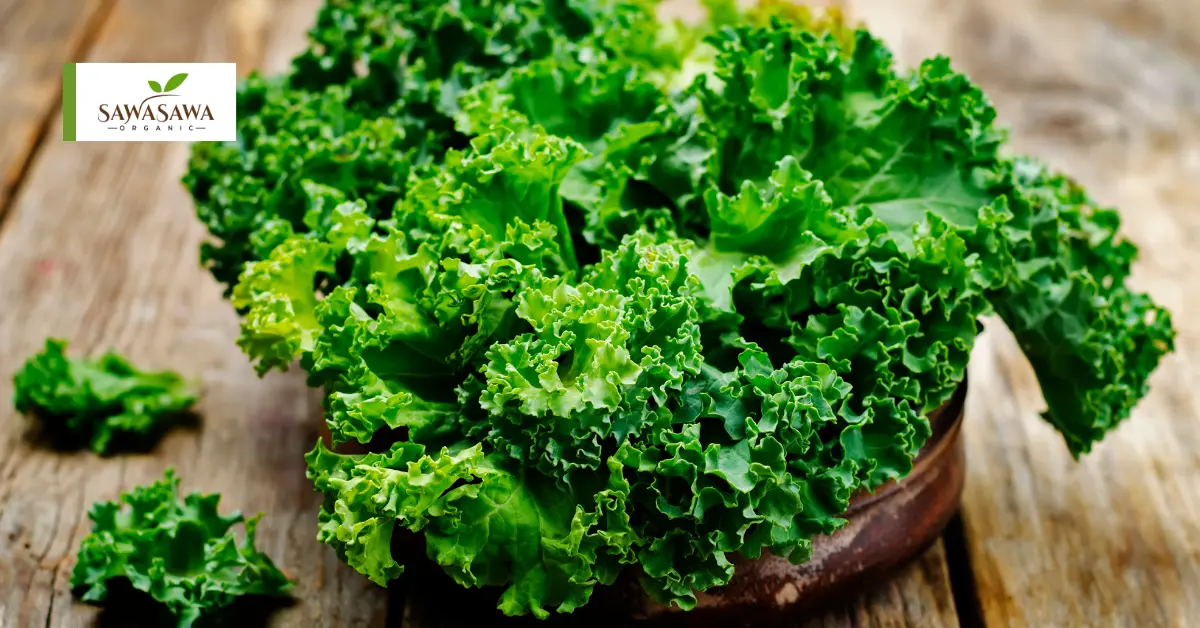
Discover why organic kale is the ultimate nutrient-dense superfood. Learn about its health benefits, uses, and why choosing organic matters for your wellbeing.
Kale has become one of the most talked-about vegetables in the health and wellness world—and for good reason. Known as a nutrient-dense superfood, kale provides an impressive combination of vitamins, minerals, fiber, and antioxidants that support overall health. When grown organically, kale delivers these benefits without the risks of pesticide exposure, making it a clean and powerful addition to a balanced diet.
Organic kale is not simply another leafy green—it is a nutritional powerhouse that can support stronger bones, boost the immune system, improve skin health, and protect against chronic illnesses. As people seek sustainable, natural ways to eat healthier, kale stands out as a vegetable that bridges tradition with modern nutrition science.
One of the reasons kale has been called a “green powerhouse” is its impressive nutrient content. A single cup of raw kale (about 67 grams) provides:
Vitamin A: Supports vision, immune health, and cell growth
Vitamin C: Enhances immunity, supports collagen production, and improves iron absorption
Vitamin K: Plays a key role in blood clotting and bone strength
Calcium: Essential for healthy bones and teeth
Potassium: Helps maintain healthy blood pressure
Magnesium: Supports muscle function and energy production
Fiber: Improves digestion and supports gut health
Antioxidants: Protect the body from oxidative stress and inflammation
The combination of these nutrients makes organic kale one of the most nutrient-dense foods available per calorie.
Organic kale is rich in calcium, magnesium, and vitamin K—nutrients that are crucial for bone density and preventing conditions like osteoporosis. Unlike dairy products, kale provides calcium without saturated fats, making it an excellent option for lactose-intolerant individuals.
The high vitamin C content found in organic kale strengthens immune function. Antioxidants such as quercetin and kaempferol also protect cells from damage and reduce the risk of infections.
Kale contains soluble fiber, which helps lower LDL cholesterol levels. Combined with potassium, it supports heart health by improving circulation and reducing high blood pressure. Regular consumption of kale can be part of a heart-friendly diet.
The sulfur compounds in organic kale play a vital role in detoxification. They help the liver process toxins more efficiently, ensuring the body eliminates waste products and harmful substances.
Vitamin A and vitamin C in kale promote collagen production, support cell repair, and reduce visible signs of aging. Regular consumption of kale can contribute to healthier skin, stronger hair, and a more youthful appearance.
Low in calories but high in nutrients and fiber, kale helps promote fullness and reduces unnecessary snacking. It also provides energy-supporting minerals like iron and magnesium, making it a great addition for those looking to maintain a healthy weight.
Kale is versatile and can be enjoyed in numerous ways that suit both traditional and modern cuisines. Here are some practical methods:
Smoothies and Juices
Blend organic kale with fruits like bananas, apples, or pineapples for a nutrient-rich beverage.
Stir-Fried or Sautéed
Lightly sauté kale with olive oil and garlic for a quick, flavorful side dish.
Fresh Kale Salads
Massage kale leaves with olive oil and lemon juice to soften them, then toss with avocado, seeds, or nuts for added crunch.
Kale Chips
Bake kale leaves in the oven with a light drizzle of olive oil and sea salt for a healthy, crispy snack alternative to potato chips.
Soups and Stews
Add kale to traditional vegetable soups or hearty stews to boost nutritional value.
Casseroles and Pasta Dishes
Kale works well as an addition to pasta sauces, lasagnas, or casseroles, providing both flavor and added nutrients.
Choosing organic kale ensures maximum nutritional value while reducing exposure to harmful pesticides and synthetic chemicals. Kale is often listed among the “Dirty Dozen” vegetables with the highest pesticide residues, which makes organic cultivation especially important.
Beyond health benefits, organic farming practices promote soil fertility, biodiversity, and sustainability. By supporting organic produce, consumers contribute to eco-friendly farming systems that protect the environment and future generations.
Look for vibrant green leaves without yellowing or wilting.
Store kale in the refrigerator in a breathable bag to maintain freshness for up to five days.
Wash thoroughly before use since leafy greens can collect dirt.
Remove tough stems before preparing, especially for raw salads.
As global awareness of nutrition and sustainability grows, organic kale has become a symbol of healthy living. It represents a shift toward cleaner diets, functional foods, and natural remedies. From restaurants to home kitchens, kale continues to be celebrated as a versatile ingredient that aligns with modern wellness trends.
Organic kale also supports farm-to-table movements by connecting consumers with local organic farmers. By choosing kale, you are not only investing in your health but also contributing to sustainable agriculture.
Organic kale is more than a leafy vegetable—it is a superfood that combines exceptional nutritional value with wide culinary versatility. Packed with vitamins, minerals, fiber, and antioxidants, it supports bone health, heart health, immunity, skin vitality, and overall wellbeing.
Incorporating organic kale into daily meals is a simple but powerful step toward a healthier lifestyle. Whether in smoothies, salads, or as a cooked dish, kale can easily adapt to your diet while providing maximum benefits. Choosing organic ensures that every bite contributes not just to personal health but also to environmental sustainability.
For more tips, recipes, and healthy living inspiration, visit: SawaSawa Organic Healthy Living